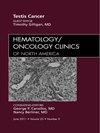Clinical Characteristics and Treatment of Familial Hemophagocytic Lymphohistiocytosis
IF 2.5
3区 医学
Q2 HEMATOLOGY
引用次数: 0
家族性噬血细胞性淋巴组织细胞病的临床特点及治疗。
家族性噬血细胞淋巴组织细胞病(fHLH)包括一组常染色体隐性遗传病,其特征是种系功能丧失变异,对淋巴细胞毒性产生负面影响。这些疾病表现出不同的临床表现,最常与严重的过度炎症有关。fHLH是通过临床和实验室评估以及基因检测和免疫分析诊断的。在缺乏治疗来控制过度活跃的免疫系统的情况下,fHLH通常是致命的。治疗历来采取细胞毒性化疗和/或免疫抑制治疗的形式,尽管炎性细胞因子的靶向抑制剂及其下游信号传导越来越多地被使用。最终治疗需要同种异体造血细胞移植。
本文章由计算机程序翻译,如有差异,请以英文原文为准。
求助全文
约1分钟内获得全文
求助全文
来源期刊
CiteScore
4.10
自引率
0.00%
发文量
86
审稿时长
6-12 weeks
期刊介绍:
Hematology/Oncology Clinics updates you on the latest trends in patient management, keeps you up to date on the newest advances, and provides a sound basis for choosing treatment options. Under the direction of an experienced guest editor, each issue focuses on a single topic in hematology and oncology, including hemostasis and thrombosis, molecular and cellular basis of hematology, coagulation disorders, and cancers—bone, gastrointestinal, head and neck, lymphomas, neuroendocrine, breast, renal cell, melanoma, and more.

 求助内容:
求助内容: 应助结果提醒方式:
应助结果提醒方式:


